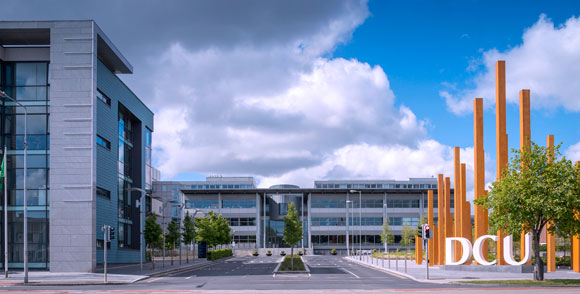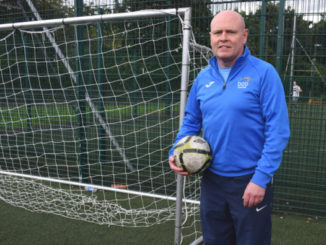
[dropcap]C[/dropcap]hanging Irish legislation to allow survivors of the Mother and Baby Homes access to adoption records “should be the first and central pillar in a human rights-based response to the Commission’s report” according to DCU Professor James Gallan.
In 2017, Dr Gallan was appointed to assist the Commission’s investigation in the Mother and Baby Homes report.
He was chosen by the Minister for Children and Youth Affairs as an expert advisor to assist the Commission on the investigation into the Mother and Baby Homes, by mapping out a model of ‘transitional justice’ in order to give a voice to the former residents of the Mother and Baby Homes and County Homes.
The Commission released the investigative report into the Mother and Baby Homes, along with recommendations of redress for survivors that the Commission considers appropriate.
Allowing adopted people from the institutions access to their personal and medical information was a key recommendation. Adopted people do not have a right to access their original birth certificate or information on their families of origin.
The report stated: “Adopted people should have a right to their birth certificates and associated birth information.
“A person’s right to his or her identity is an important human right and should only be denied in very exceptional circumstances.”
According to the previous Attorney General Seamus Woulfe, it was unconstitutionally unacceptable to allow the adopted people from Mother and Baby Homes unrestricted access to their birth information.
However, in recent days the current Attorney General has taken the view that there is no need for a referendum and the Oireachtas can legislate for an unqualified right of access to birth and medical records for the survivors of the institutions.
According to Dr Gallan: “Adoption information and tracing legislation has been debated by various governments since the early 2000’s.
“The lack of political will has combined with perceptions that there were constitutional law obstacles to overcome in this area.”
The investigation was commissioned by the Department of Children, Equality, Disability, Integration and Youth in 2015, after claims emerged that hundreds of babies were buried in a mass, unmarked grave near a Mother and Baby home in Tuam, County Galway.
The discovery of the mass grave in Tuam prompted the Irish government to open an investigation into the operation of the Mother and Baby Homes and County Homes across the country, in order to bring justice and recognition to the lives and deaths of the many residents of the Mother and Baby Homes.
The final report of the Commission of Investigation into Mother and Baby Homes across Ireland was published on January 12, 2020. The report uncovered findings that the women in these institutions suffered from emotional abuse, denigration and derogatory remarks.
According to the report: “It appears that there was little kindness shown to [the women] and this was particularly the case when they were giving birth.
“Many of the women found childbirth to be a traumatic experience. The overwhelming majority were first-time mothers.”
According to the report: “The trauma of childbirth must have been especially difficult for the many women who had no prospect of keeping their child.”
The investigations found that the larger institutions were regimented and inadequately staffed, with a cold and seemingly uncaring atmosphere.
The investigations final conclusion was met with severe criticism, as the report determined that the chief responsibility for the treatment of the women in the Mother and Baby Homes was not down to the Church and State, but rather the blame lay with society, mainly the fathers of the babies and the families of the women.
Dr Gallan stated that: “The Commission’s understanding of responsibility as primarily being attached to society and families is unduly flat – It takes no account of the role of power and the power of the church in particular in structuring social and moral pressures of fathers, families and women and girls especially based on an authoritarian and shaming theology and desire for social control.
“It is remarkable and surprising that the Commission did not consider the role of power and dominance in Mother and Baby Homes in society and adopted an overly legalistic approach suggesting that women and girls were not legally coerced into Mother and Baby Homes, but ignored whether there was social, moral and political coercion instead.” He said.
Shauna Burdis
Image credit: Aidan Crawley/ EPA
Note: This article was reuploaded on 26/03/2021 due to a fault with The College View website.



